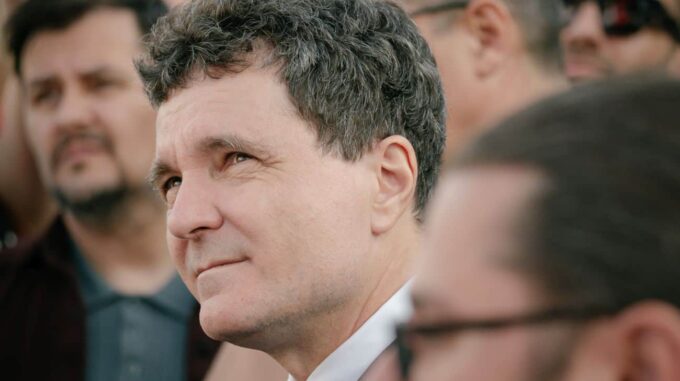The elected President of Romania has spoken out against deploying peacekeepers in Ukraine

The new President of Romania, Nicoșor Dan, who is currently shaping the country’s political scene following the recent presidential elections, has expressed a firm position regarding Romania’s involvement in international efforts to resolve the conflict in Ukraine. Specifically, he stated that the country does not plan to send its troops as part of a peacekeeping mission in Ukrainian territory, although it is willing to support allies operationally if assistance is needed within a broader military support framework. In his statement, which was referenced from the reputable outlet Politico and published by "European Truth," Dan emphasized that Romania is capable of actively aiding Western allies in achieving their strategic goals, but has no intention of directly participating in peacekeeping forces that ensure stability and security in Ukraine. "Regarding significant operational support on Romanian territory — yes. Regarding participation in a contingent that would carry out peacekeeping missions on Ukrainian land — no. That would be inappropriate, given the existing tensions between Romania and Russia," he stated directly. The newly elected president’s remark has garnered considerable attention and reveals his desire to avoid escalating tensions with Moscow while maintaining partnership relations with Western countries supporting Ukraine. At the same time, Dan noted that all decisions concerning active involvement in armed conflicts should be made by Ukraine itself, and no such decisions should be taken without its consent. Thus, he outlined the possible framework for Romanian support in the conflict, stressing that the country favors diplomatic avenues and the preservation of Ukrainian sovereignty. In the context of the overall situation, Dan admitted that he is not overly optimistic about a rapid achievement of stability and peace in the region. However, he highlighted the importance of European unity. According to him, European countries should demonstrate cohesion and continue assisting Ukraine as long as Kyiv remains able to negotiate and seek favorable peace conditions. This, in his view, is a key direction for their joint policy, which should serve as a stable foundation for further diplomacy. Regarding the political atmosphere within the country, the victory of Nicoșor Dan in the runoff of the presidential elections was a decisive event last month. He gained support from a large segment of citizens and a significant part of the diaspora abroad, noted for its active mobilization. The elections reflected signs of political renewal and a desire for a more balanced foreign policy oriented toward regional security and stability. With generally high voter turnout, the electorate placed their hopes in the new leader, who promises to work on strengthening diplomatic ties and keeping the country out of conflicts that could threaten its security. As is known, Nicoșor Dan, who has previously built an image as an open and progressive politician, gained support not only through his political platform but also due to his personal achievements. The former mayor of Bucharest, known for reforms in urban management and active participation in sports events, now aims to build a new model of the country’s foreign policy — diplomatic, pragmatic, and aimed at supporting regional stability. Insights into the new administrative course and the strategic vision for the future of Ukraine and Romania in the context of global security can be found in various analyses and comments by experts and diplomats. But one thing remains indisputable: the new Romanian leader has set a clear course — the country is united and deliberate in its foreign policy decisions, striving to maintain a balance between supporting allies and preserving stability and security at its borders.

